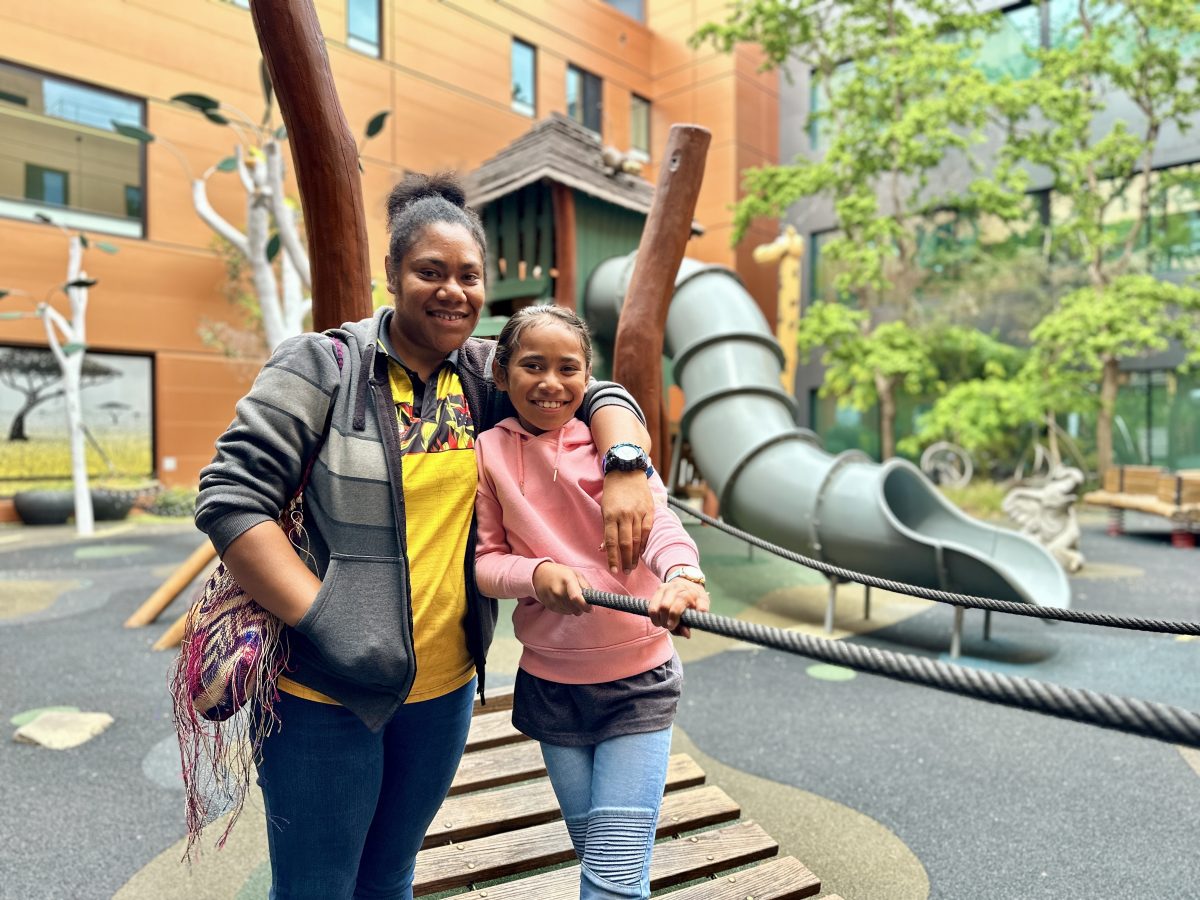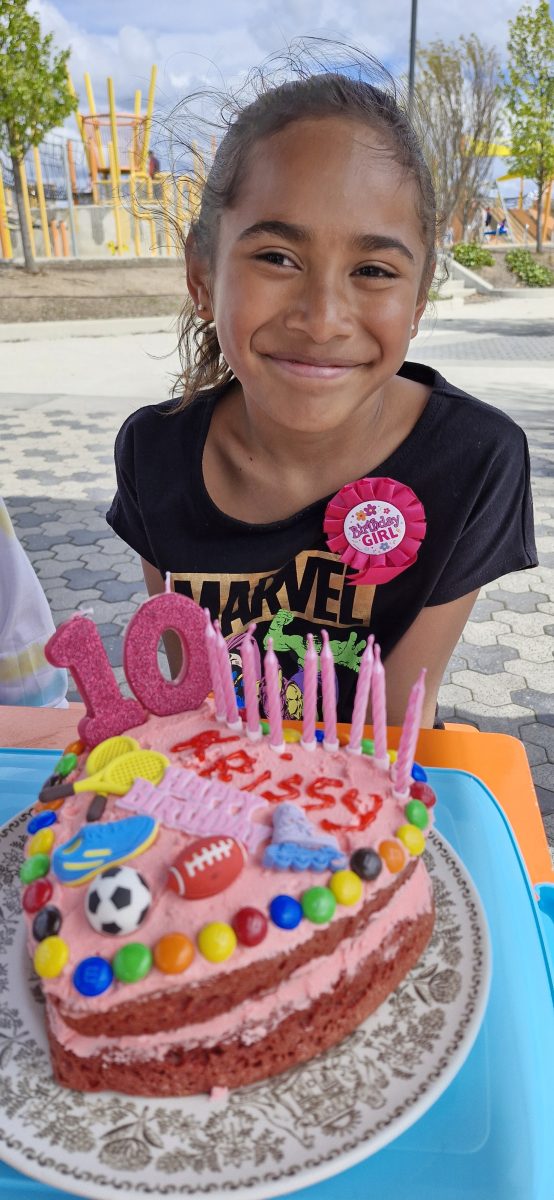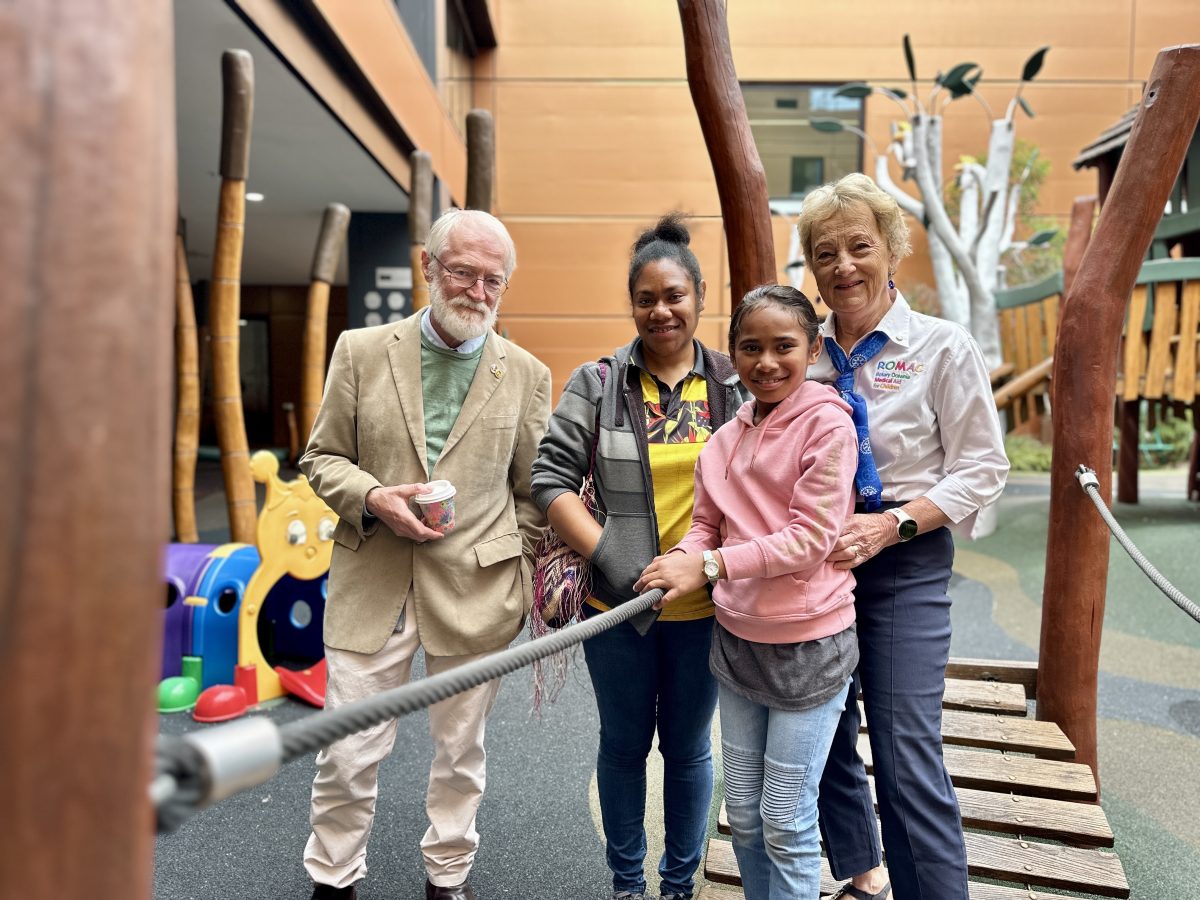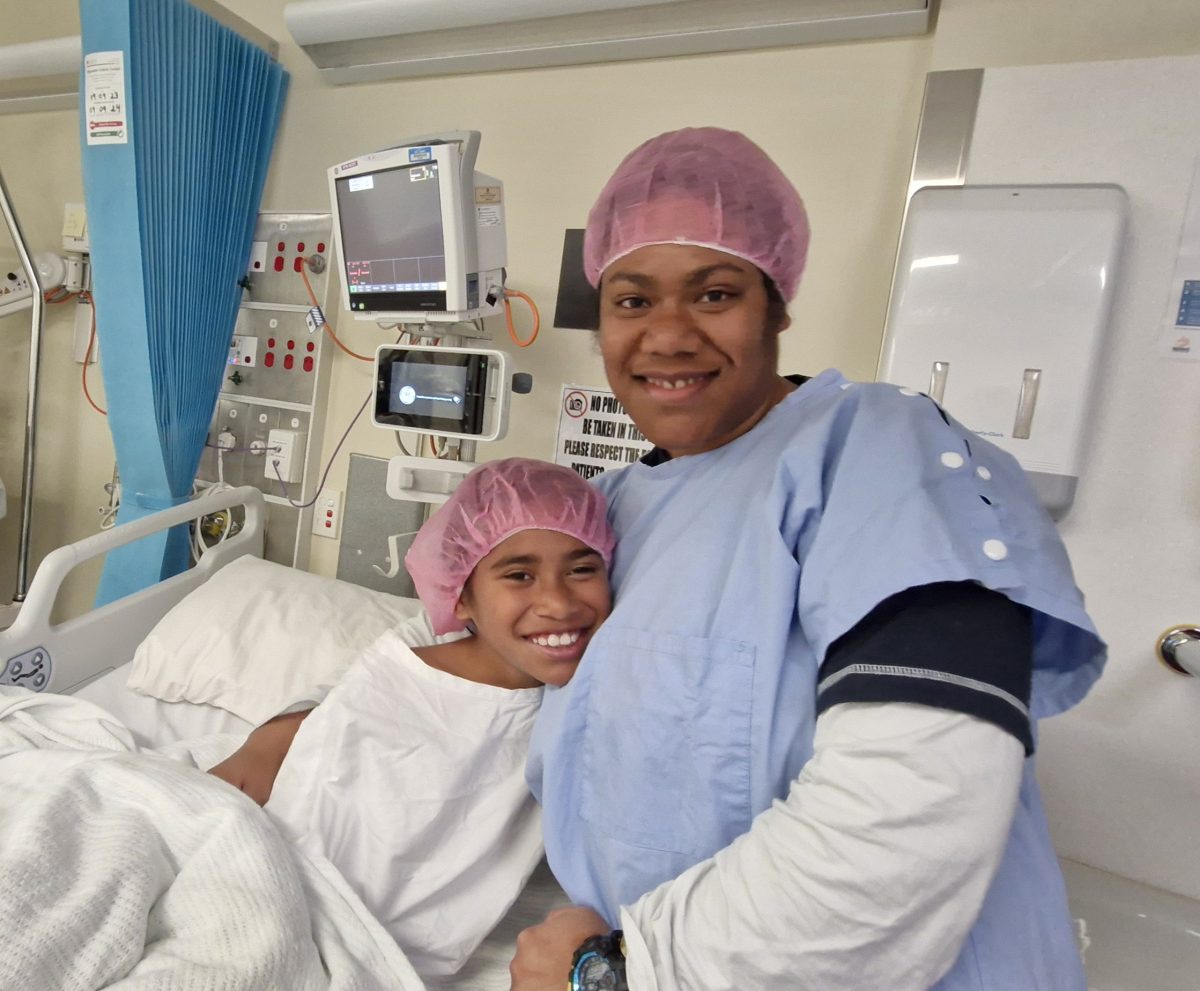
Mother and daughter Sonia Meauri and Krisselda Ila were sponsored to come to the Canberra Hospital for treatment. Photo: James Coleman.
Sonia Meauri can hardly talk about what the last 10 years have been like without choking up with tears.
Her daughter, Krisselda Ila, was born with a rare deformity that meant she would be forced to go about life with a stoma and a nappy. Having children would be out of the question.
And now, all that is history.
Nine months, two major surgeries, and many scans and check-ups later, Krisselda, aged 10, is bouncing with life at the playground in Canberra’s Centenary Hospital for Women and Children. And they’re returning to their home in Port Moresby, Papua New Guinea, this week.
“It’s life-changing, not only for her but for everyone,” Sonia says.
“It was quite expensive back home to have the stomach bags and all that, so what we usually did was just put a nappy on her. And that’s how it was for her the whole time.”
Krisselda is among one in 3500 to 5000 children born each year with an ‘imperforate anus’, where – in the words of Associate Professor Dr David Croaker, paediatric surgeon at the Canberra Hospital – the anus either isn’t there at all or is in the wrong place.
In about one in 10 of the female cases, the large intestine is routed into the vagina, and the vagina into the urethra, effectively only leaving one opening.

Krisselda Ila celebrated her 10th birthday while here in Canberra. Photo: Sandra Goldstraw.
“Everything is obstructed,” David says.
“And generally speaking, it’s fatal if not treated. Everything has been detached and put back in more or less the usual places.”
In Krisselda’s case, this required an initial seven-hour surgery, followed by another major surgery to remove the stoma – the temporary opening to allow her to still pass stools – and several examinations under anaesthetic.
“Oh, she was an excellent patient,” David adds.

Dr David Croaker (left) and Sandra Goldstraw (right) with Sonia Meauri and Krisselda Ila. Photo: James Coleman.
Usually, these types of surgeries are completely out of reach for families in poorer countries like Papua New Guinea if it weren’t for the work of Rotary Oceania Medical Aid for Children (ROMAC).
Since 1988, this program, funded by the Rotary Club, has brought more than 600 children from the Pacific islands to hospitals around Australia and New Zealand for complex surgeries that can’t be completed in their own country.
ROMAC signed a memorandum of understanding with the Canberra Hospital in 2007, which allows for up to four children a year to come here with complex cases for treatment.
Krisselda’s doctor put the family in touch with ROMAC more than a year ago, and she and her mum arrived in Canberra in March. She’s now the 28th child to come here.
“It’s been an absolutely wonderful opportunity to have these children here,” ROMAC ACT regional chair Sandra Goldstraw says.
“Australian children have the same problems, of course, but they’re done earlier, and our children are sicker and more malnourished and older, so it’s more complicated in so many ways.”

Preparing for life-changing surgery. Photo: Sandra Goldstraw.
Local Rotary Club members agree to house families during the stay, so Sonia, for instance, has been able to stay at a home in Nicholls.
Meanwhile, the government’s Education Directorate sorts out schooling for the children while they’re here too, so Krisselda has been making friends at the nearby Gold Creek Primary School over the past six months.
“She’s been up and about, quite full of beans the whole time,” Sandra says.
Krisselda is looking forward to being reunited with her brother when she arrives back home, even if she’ll miss the friends she’s made here.
“I feel good,” she says.
Want to make a difference? Make a donation at the ROMAC website.












